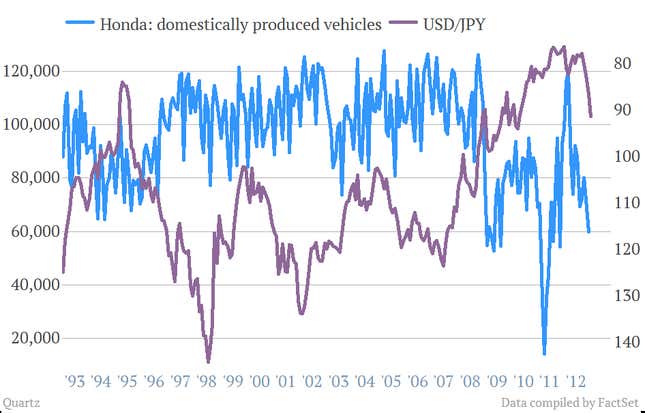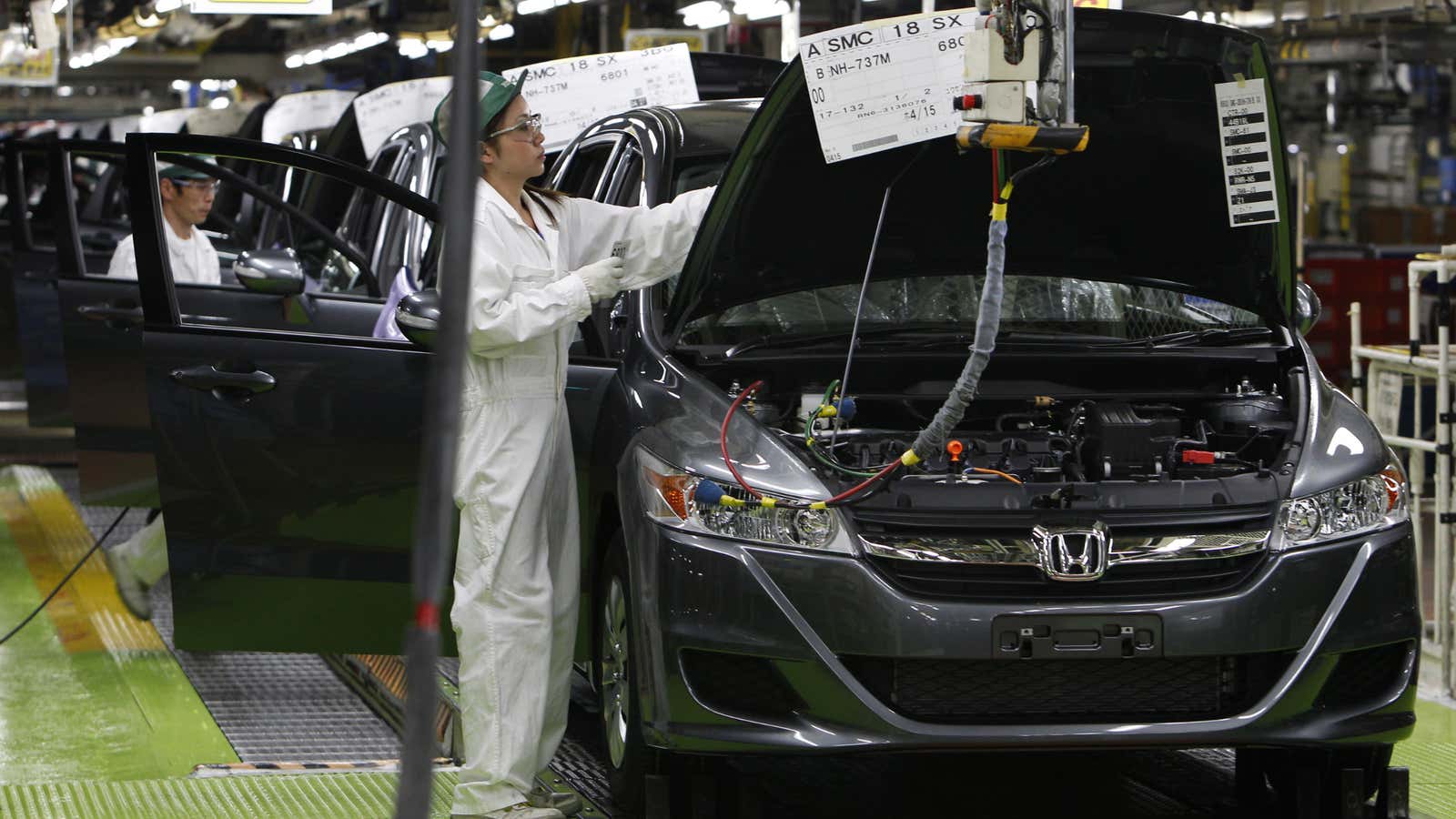Shinzo Abe’s big talk about stimulus may finally be paying off. Honda just announced that it’s opening a car factory … in Japan. As Bloomberg notes, it hasn’t done that in 49 years.
But the Japanese prime minister can’t claim too much credit considering that the factory, to be based in a town of 36,000 called Yorii, has been planned for around six years. The company says the new factory is part of a plan to reorganize its domestic production, which will focus on compact models that sell well in Japan. This may be part of a larger global expansion the company has kicked off that seeks to make certain models near their target markets.
This is also important because of what it could mean for Japan’s atrophied manufacturing sector. Japanese manufacturing jobs have dwindled by around 40% since their peak in 1992. At the end of 2012, there were fewer than 10 million manufacturing jobs for the first time in more than 50 years. Two decades of deflation, which has the effect of curbing consumption, is responsible for some of this, though the steady appreciation of the yen in the last six years is probably a bigger factor, due to the sector’s heavy reliance on export demand, as this chart suggests:

Finally, it’s good for Japanese people, who’ve had to live through the tough couple of decades that everyone likes to declare “lost.” Take Tomiko Yokota, the owner of a Yorii donkatsu restaurant with whom Bloomberg chatted. “Honda is a world-renowned company and it’s coming—who wouldn’t be excited?” she said. “There will be more people, more traffic. We’re too small to fit lots of people, but we do take-out bentos too.”
